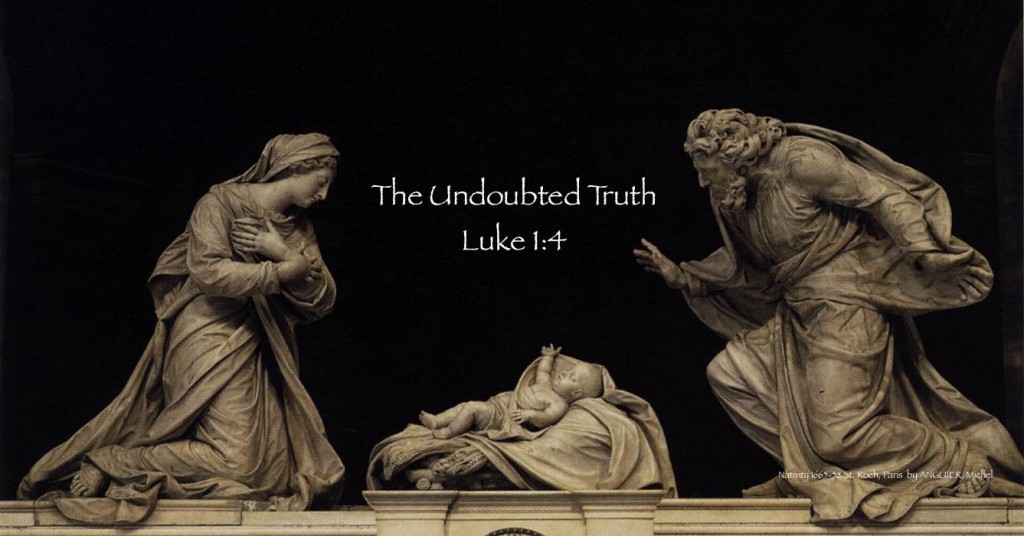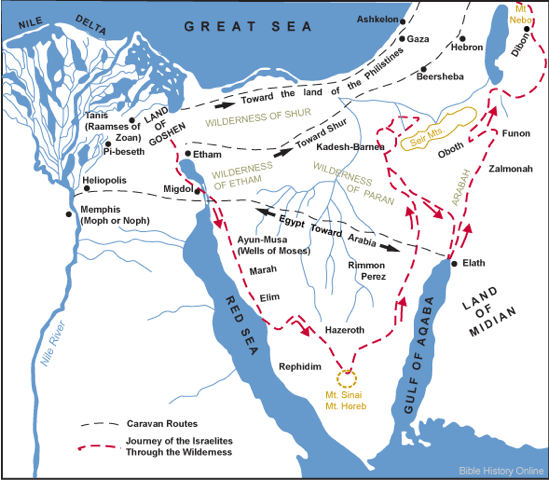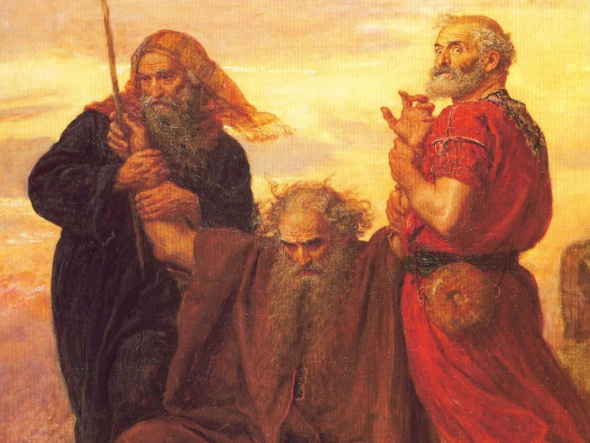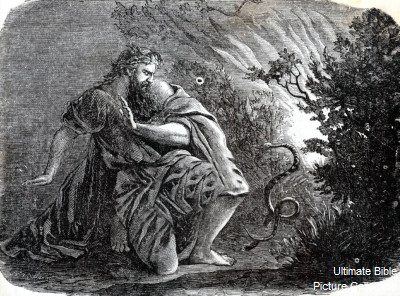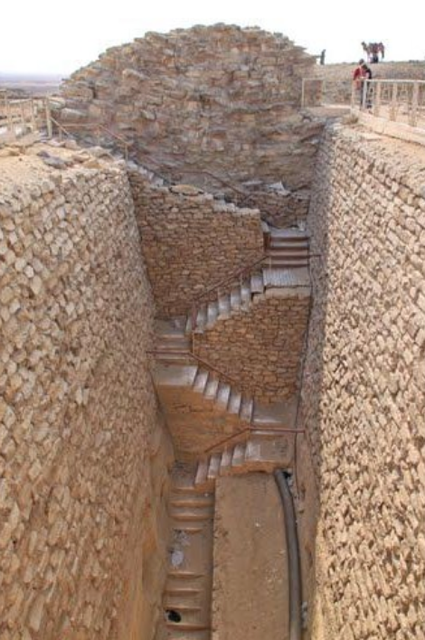Author Archives: Shelly Bergland
Exodus 17:off When the Foes Keep Coming 5-3-15
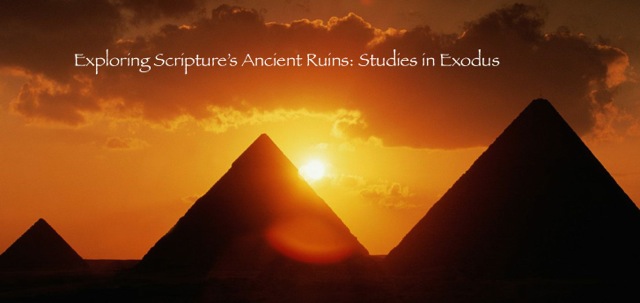
©1998-2015
Fellowship
Life of Moses
Lesson 29
When the Foes Keep Coming…
Exodus 17:1ff
Introduction…What’s on your heart right now? Now? Are you at peace? Or are you burdened down with fear and worry? Are you arms lifted up and outstretched to heaven’s eventual triumph or are they fallen in fear and discouragement?
In both these divine rescues, Moses will be directed to use the rod or staff that God had given him to shepherd his people to deliver them, despite their lack of trust that indeed they will be delivered. Has God given you a staff? Something by which he will use to prove his deliverance in your current predicament?
Our hope or desire is never to be in stress or challenge, but without the stress or challenge, there is no dependence, no cry out to God for his deliverance, no hope of his love and no strengthening of faith or trust that he will provide because he has provided in the past. If you want to be freed from being an abused serf in someone else’ abundance to owning a piece of your own heaven, then be prepared for constant, challenge, risk and danger in getting there. But with that risk-filled journey comes a divine Deliverer—God—and that my friends, is the real journey…trusting the Invisible, the Divine.
General Introduction: Moses led by God is leading the children of Israel, perhaps as many as 2-3 million strong, away from Egypt and closer to the land promised to the forefathers many seven centuries before. But their journey is not without its problems.
Recent Studies…
The sons and daughters of Israel sing out their praise to Yahweh because in what Yahweh God has just done in not only delivering Israel from utter annihilation at the hands of Pharaoh’s massive army. Ex. 15:1ff.
After healing Marah’s bitter waters, Yahweh tests Israel with a lasting ordinance—if you keep my laws, I will keep you safe from all the things that the Egyptians feared. Ex. 15:22ff.
Now, with their backs seemingly up against another wall–the wall of daily sustenance in the desert, the whole community rises up to turn its collective fear and complaint towards God’s servants. Ex. 16:1ff.
Last Week… First the People are commanded to gather and keep enough manna only for that day; Second, they are told to gather twice as much on the sixth day and to save a portion of it for the seventh day because this day is to be a day of rest that belongs to the Lord. And yet despite God’s clear commands, some will still disobey God, attempting to gather too much manna or gathering it on the Seventh day. Both attempts fail, angering both Moses and Yahweh. Finally, Israel is told to set aside into perpetuity one daily sample so that generations to come may know how Yahweh God provided for his people during on their way to the Promised Land. Ex. 16:19-36.
Pray
Read Passage several times…
Ask Questions…
First Story…
Exod. 17:1 The whole Israelite community set out from the Desert of Sin, traveling from place to place as the LORD commanded. They camped at Rephidim, but there was no water for the people to drink.
Where is the Desert of Sin? Why was it called Sin? Was it a bad place? Is this where we get the biblical word “to sin,” as “to miss the mark” from? How far did they travel at any one time? Ten miles? Twenty? I can’t imagine how far over two million people can travel in a day, and how far of a line would the traveling caravan have stretched? Each new embarking had to be fraught with the peril of finding little to no water. What a seemingly impossible and desperate journey of trust, faith and courage. You can’t go back to Egypt. There are nations living in the land you are traveling to and there are so many people traveling there under harsh, desert conditions. It was certainly a journey of trust and dependence.
2 So they quarreled with Moses and said, “Give us water to drink.” Moses replied, “Why do you quarrel with me? Why do you put the LORD to the test?”
Why did they quarrel? Were they about to die of thirst? Why does Moses ask, “Why do you put the Lord to the test”? Did this represent Israel’s doubting that the Lord would provide for them?
3 But the people were thirsty for water there, and they grumbled against Moses. They said, “Why did you bring us up out of Egypt to make us and our children and livestock die of thirst?”
On the one hand this is understandable. Why would God do this? On the other hand, he has always provided before. Why would he not now? Is this “putting God to the test”? Oh, the struggle…to trust, based on previous provisions, or to doubt and panic?
4 Then Moses cried out to the LORD, “What am I to do with these people? They are almost ready to stone me.”
Because they can see you. They can’t stone a cloud. Been there and done that.
5 The LORD answered Moses, “Walk on ahead of the people. Take with you some of the elders of Israel and take in your hand the staff with which you struck the Nile, and go.
Crazy faith?
6 I will stand there before you by the rock at Horeb. Strike the rock, and water will come out of it for the people to drink.” So Moses did this in the sight of the elders of Israel.
Horeb? Is this also Sinai, where the Children of Israel will receive the Law? Is this the place of their wedding with God, where they will receive their covenant and Law? How did this water come out of a rock? Was it like a spring?
7 And he called the place Massah and Meribah because the Israelites quarreled and because they tested the LORD saying, “Is the LORD among us or not?”
Second Story…
8 The Amalekites came and attacked the Israelites at Rephidim.
Are we at the same place or have we journeyed further? And who are the Amalekites? Were they fierce or were they just threatened? And how many? And is word out and the nations lining up to defend their lands?
9 Moses said to Joshua, “Choose some of our men and go out to fight the Amalekites. Tomorrow I will stand on top of the hill with the staff of God in my hands.”
Finally, a military force. And once again, the supernatural staff that turns into a snake and that smote the Nile, the Red Sea and now a rock to deliver water, is about to figure into the Children of Israel’s deliverance once again.
10 So Joshua fought the Amalekites as Moses had ordered, and Moses, Aaron and Hur went to the top of the hill.
11 As long as Moses held up his hands, the Israelites were winning, but whenever he lowered his hands, the Amalekites were winning.
That’s a long time to hold up one’s arms. Why attach the battle’s success to Moses’ raised arms?
12 When Moses’ hands grew tired, they took a stone and put it under him and he sat on it. Aaron and Hur held his hands up –one on one side, one on the other –so that his hands remained steady till sunset.
A most logical and ingenious solution…keep the hands up anyway you can…
13 So Joshua overcame the Amalekite army with the sword.
14 Then the LORD said to Moses, “Write this on a scroll as something to be remembered and make sure that Joshua hears it, because I will completely blot out the memory of Amalek from under heaven.”
Who were these people? Why did God want to wipe them out?
15 Moses built an altar and called it The LORD is my Banner.
16 He said, “For hands were lifted up to the throne of the LORD. The LORD will be at war against the Amalekites from generation to generation.”
Is God using the Children of Israel’s sojourn to judge pagan nations?
Who? (1st) Israelites, LORD, Moses, our children, elders of Israel, (2nd) in addition to the first story: Amakelites, Joshua, Aaron, Hur
Where? (1st) from the Desert of Sin, traveling from place to place, Rephidim, out of Egypt, on ahead of the people, the Nile, rock of Horeb, in the sight of, Massah and Meribah, (2nd) at Rephidim, go out, on top of the hill, in my hands, held up, under him, on one side, one on the other, under heaven, the throne of God
When? Tomorrow, as long as, whenever, when Moses’ hands grew tired, then the Lord, from generation to generation
What?
• The Israelites travel to Rephidim where there is no water.
• They begin to doubt and quarrel with Moses because of the lack of water. 2-3
• Moses cries out to God because they are about to stone him. 4
• The LORD directs Moses, along with the elders, to walk ahead of the people and to strike the rock of Horeb. 5-6a.
• Moses does and water comes gushing out. 6b
• Moses called this place Massah and Meribah because the people grumbled and doubted God’s presence. 7
• Then the Amakelites come out and attack them. 8
• Moses tells Joshua to go out and fight them. Moses will take the staff of God to the top of the overlooking hill. 9-10
• As long as Moses held his hands up, the Israelites were winning, but when he would drops his hands they began to lose. 11
• So they provided a rock for his to sit on and they held his arms up until sunset. Eventually the Israelites defeated the Amakelites. 12-13
• The Lord commanded Moses to write this down. 14
• After which he built an altar and named it “The Lord is my Banner.” 15-16
Summary…Via His staff, God delivers Israel from two fierce enemies; a scarcity of water and a fierce foe.
Why?
• People doubt quickly, even when God has provided many times before. In other words, people have short-term memories, and they panic. Been there and seen that.
• When desperate, the mob will point its finger or focus its blame on visible leadership. Someone has got to take the fall. If we can’t fix it, then the nation must have blood. It can’t be just to cry out to God for help.
• God is faithful. He delivers and protects his people, his charge…his responsibility.
• It is God who is our source of power and strength.
• God allows life’s different dangers to threaten us in order to see if we will trust in him.
• Leadership can’t do it all by themselves; they need those whom they lead’s support.
• It is appropriate and good to commemorate God’s deliverance.
• In delivering one person or set of people God may be judging or disciplining another person or group of people. God is multitasking in his purposes.
So What?
2003 Application…
Struggles…a busy day, finishing up this lesson, participating in a wedding at our church, finishing up the message. Sunday evening. Next week, Jordan has a college baseball tryout; I am trying to find a tractor, plant some grass on the ball field and prepare for the Carpenters’ return to our church, as well as Father’s Day, etc.
Truths…Don’t panic in the midst of a fierce foe; trust God even up to the last second.
Application…Keep walking ahead with the staff of God in my hand. The staff today, I would assume would be God’s Spirit—his power becoming my power—as particularly manifested via prayer and his word. I am going to trust God to get me through this next crucial week or so, walking by faith that indeed he will see me through.
On an average day, 288 million gallons of water, enough to fill St. Louis Cardinal’s Busch stadium in 33 hours, will bubble up from the earth beneath at Big Springs near Van Bure, MO.
2015 Application…
Thanksgiving…God has been faithfully gracious to me on so many levels here lately. My life is a thanksgiving. People have helped me at just the right moment too many times to mention; I had an amazing afternoon with my Spiritual daughter, who went to sleep that night dreaming of the Spiritual story that I had been waiting to tell her for ten years—that her safety and security is NOT in a guy, but eternally secure in her kinsman redeemer, Jesus. I am indeed blessed.
Struggle…trusting God that as he has so often delivered in the past, that he will deliver again and that it will be his weekend with our college friend Nancy, the most interesting person on the planet, here to sing and share at Fellowship this weekend. I want it to be a good weekend for her, for us and for Fellowship.
Truth…That as God has always provided for us in the past, he will continue to provide for us on our journey home. And yet, without hardship or stress, there is no provision, no trust, no deliverance. The world can be a very difficult place. Leaving Egypt, traveling to Canaan, and going through the desert to get there are all threats. Can we trust his provision in the midst of little being like heaven or perfect?
Application…Today, this weekend, Sunday, this season in my life…these past thirty years at Fellowship, or almost forty years of deeply growing in my faith, or almost fifty since I trusted his sacrifice as an atoning payment for all my sinful imperfections, which is much, all represent my journey of having left the enslaving security of my own personal sinful Egypt and traveling through this world or life’s dangerous desert journey to my heavenly promise land, saturated with milk and honey. And with each trial or trying adventure is the moment in which I can panic, grumble and rebel because I see threat or to cry out to my Redeemer and trust his eventual deliverance. Each moment…Nothing has changed, except that with each trial and corresponding desperate trust comes greater confidence, hope, love and trust. I accept the journey. I want the Promise Land without the struggle, but I accept the journey. I accept the dangers. I accept the threats, but I also accept your deliverance…
Your struggles?
Truth?
Application?
Scripture quotations, unless noted otherwise, are taken from the Holy Bible: New International Version‚ NIV‚ Copyright 1973, 1978, 1984, International Bible Society. Used by permission of Zondervan Bible Publishers. All rights reserved.
Exodus 13:off The Path Less Traveled 2-22-15
©1998-2015
Fellowship
Life of Moses
Lesson 22
The Path Less Traveled…
(Reminding, Teaching, Worshiping and Trusting)
Ex 13:1ff
2.22.15
Introduction… In a world that can often times seem very discouraging, what best holds you faithful or accountable in your Spiritual journey or walk with God: prayer? Sunday worship? Daily devotional reading of the Bible? Teaching others? Small group Bible study? Inspirational music? A good friend? Your mate? Who or what best holds you accountable?
One of our church kids asked me for a recommendation to go to Christian-based prep school. I asked him why? Without hesitation, he answered that he believed it would be for advantageous for him Spiritually. When I asked why? he answered that it was not easy being a Christian at his local public school. When I asked why was this? he seemed to imply that there is fear and intimidation he must face about when he is openly honest about his faith or belief in God. So sad, but not unexpected.
Now whether he gets into his Christian prep school or not, and whether it works out as he hopes for, who knows, but I do know the kid is thinking, and he is seeking to think through a biblical-Spiritual lens. He wants to talk about God without threat, and who wouldn’t. Even in the sixth grade, that’s pretty cool and seemingly somewhat rare.
How many of us filter daily existence through this type of Spiritual lens—what allows me to discuss and talk about my faith freely, without fear of rebuke or repudiation
“Two roads diverged in a wood, and I–I took the one less traveled by. And that has made all the difference.” Taken from “The Road Not Taken” by Robert Frost.
In a passage that at first glance appears fairly sedate compared to what we have been experiencing here lately, i.e. devastating plagues and miracles powerfully delivered by the hand of God upon a stubborn, polytheistic Egyptian dynasty (as summarized in the review below), there lies embedded some very powerful and practical tools for Spiritual accountability. See if you can find them and perhaps label them. Then compare them to what I have listed within my own applicational truths near the end of this study. Seek to walk away with something…something that counts…something that repeatedly and consistently holds you Spiritual accountable and in the process contributes to your ongoing Spiritual vitality and longevity. Continue reading
Exodus 4:18-31 Redemption… 9-28-14
Exodus 4:1-17 Overcoming the Excuses 9-21-14
Gen. 47:13ff Shrewd Grace… 6-8-14
Intro… What does being shrewd mean? What about tough love? How does one know when to dispense grace at a seeming cost to the one receiving the grace? Doesn’t that seem a bit contradictory? I mean isn’t grace something not earned, or can grace be mixed with discipline and therefore be in a person’s best interest? In other words, was it a very disciplined grace or favor that found me?
Rhonda and I were just playing a dice game called Farkle with seven year old Maliki. As he rolled, he kept dropping the dice all over the floor, delaying the game significantly as we would then have to search for the dice somewhere on the floor or under the table, so finally, I told him whatever die or dice he dropped on the floor, he lost them as a part of his roll or turn. He did it again, and I stuck to my threat. He lost the last die and therefore goose-egged or farkled that roll. Remarkably after that no die ever hit the floor, AND he came back to win on what turned out to be the game’s last roll, because he rolled (on the table and not on the floor) the exact dice and, therefore, the exact number of points he needed to win the game. Was my discipline of him an example of being a shrewd steward of grace? Perhaps. It not only stabilized the progress of the game, so that I didn’t pinch his head off, but he made a strategic, risky gamble on his last set of rolls, a gamble that none of us had employed during the entire game, but a gamble that paid off. Not bad for a kid. Not bad at all. I suppose that is why sports have coaches.
Because of the desperate times and season Joseph was battling against, he determined he had to be extremely shrewd in managing or selling the grain he had collected during the years of bountiful rains and harvests. In doing so, he not only saved the lives of all the thankful Egyptians who were able to purchase the grain, first with all their money, then later with their livestock and lands, but he also solidified the wealth of the Egyptian monarchy and therefore, the political stability of the civilized world. The very shrewd use of God’s previous resources brought saving life into what could have easily been the death and destruction of a great empire. Instead, Egypt’s eventual decline was delayed for centuries.
And isn’t that what Jesus—his life, death, resurrection and the ensuing giving of his Spirit, truth and community to his believers—has done and will do even more someday for the world? Through a very painful, disciplined allocation of his life and Spiritual resources, two thousand years later, not only has the world greatly benefited (whether the world fully gets it or not) and, perhaps more importantly, so do I…and so do we.
Therefore, by Spiritual extension, as God’s redeemed vessels of divine love poured out over, on and through us, as well as, being more and more saturated with his ever-enlightening truth and Spirit, are we not to be Spiritually savvy dispensers or allocators of his truth and love as well–not casting his precious pearls before the swine?
Bottom line…much like Joseph, are we not called to be shrewd in both our physical and Spiritual subduing, saving and stabilizing of God’s now fallen and chaotic Creation? He admonished his disciples to be innocent as doves, but shrewd as serpents (Matt. 10:10).
Recently, we began a new unit or section or person of, study…the life of Joseph. Essentially, the story of Joseph, is for the most part, our story. Chosen by God for a special purpose, Joseph must first endure much suffering and injustice before arriving at his God-ordained purpose and calling, and what a purpose it will be.
As we read, I want you to continue pondering, your special identity in Christ, and that just because you may be going through difficult days, your suffering…your waiting is NOT in vain. As God’s child…as God’s children, just as with Joseph and his brothers, you…we…all have a purpose in Christ (Romans 8; Eph. 1; 1 Peter 1).
Your servant,
jc
Series INTRO…
The Bible’s very first word is the Hebrew word Bərēšīṯ, which means “in [the] beginning.” “Genesis” is actually the Greek word for “beginnings” or “origins,” and thus the origin for both the Latin and English transliteration: Genesis.
So what’s our goal? Just to explore. Like an archaeologist exploring ancient ruins, we are going back to the Scripture’s beginnings to do a little Spiritual digging and poking around to see what was God doing before God’s Son was Spiritually conceived in his mother Mary’s womb? What were the world, people and life like from the very beginning?
Summary of Recent Explorations…
The Creation: The Creator Creates His Creation and its Caretakers (Adam and Eve). Gen. 1-2.
• The Fall: But a Crafty Adversary Emerges, Infecting the Creator’s Caretakers with a Virulent Strain of Deceptive Evil (non-beneficial actions). Gen. 3-4.
• The Flood: The story of the righteous Servant and a devastating Flood. In order to Save his Creation from a self-destructive and merciless evil, the Creator Must radically purge or cleanse his Creation Gen. 5-7.
• Creation’s New Beginning…Gen. 8-11.
• Creation’s New Caretaker: The Creator Raises up, Chooses and Greatly Blesses a righteous and trusting Caretaker named Abraham. Gen. 12-25.
• The Torch of the Creator’s Trusting Caretaking Now Passes to Succeeding Generations (Isaac, Jacob, Joseph…) Gen. 26ff.
Joseph’s Story…Gen. 37-50.
• Jacob’s older sons grow deeply resentful of their favored youngest brother, Joseph. Gen. 37:1ff.
• Joseph’s jealous older brothers cruelly sell their younger brother Joseph, against his will, into slavery, and then inform their grieving father, Jacob, that Joseph has been killed by wild animals. Gen. 37:12ff.
• Despite being trafficked as a slave and falsely imprisoned, God’s favor mysteriously still accompanies Joseph. Gen. 39:1ff.
• Despite correctly interpreting the baker and cupbearer’s dreams while in prison, Joseph’s good deeds, go momentarily unrewarded. Gen. 40:1ff.
• When Pharaoh’s cupbearer recalls how Joseph correctly interpreted his dream of restoration to Pharaoh’s court while he was imprisoned along side Joseph, he recommends Joseph to Pharaoh to interpret Pharaoh’s dreams. When Joseph is able to interpret Pharaoh’s dream correctly, as seven years of plenty followed by seven years of famine, Joseph is finally delivered from his false imprisonment. Gen. 41:1ff.
• Pharaoh empowers Joseph to guide Egypt through these next fourteen years of plenty and famine. Gen. 41:38ff.
• Due to the famine, Joseph’s brothers, come to Egypt in search of grain. Unknowingly, the Egyptian ruler that they seek to purchase grain from is their younger brother Joseph. Sensing a divine plan, Joseph accuses his brothers of spying and forces them to leave their brother Simeon behind as surety that they will return with their youngest brother Benjamin. Gen. 42:1ff.
• When Jacob’s sons tell him of the bargain that they were forced to accept for their grain, Jacob initially refuses to risk losing a third son. Gen. 42:19ff.
• Finally, with grain supplies running low, Joseph’s brothers are able to persuade their father to allow them to return to Egypt, accompanied by their youngest brother, Benjamin, to purchase more grain. Their return to Egypt with Benjamin is rewarded with a great banquet held in their honor in the presence of the Egyptian ruler whom had originally sold them the grain. Gen. 43:1ff.
• Once again, the brothers have their departure from Egypt momentarily aborted under the false pretenses that one of them has stolen a silver cup. When the missing cup is found in Benjamin’s sack, his older brother Judah now offers himself to serve in Benjamin’s place in order that Benjamin might return home safely to their father. Gen. 44:1ff.
• When he can no longer contain his pent-up emotions, Joseph finally reveals himself to his brothers, warning them of the famine’s severity and their need to return here with their father to live in the shadow of Egypt’s great providence. Gen. 45:1ff.
• Pharaoh offers the children of Israel the best that Egypt has to offer. Gen. 45:16ff.
• That while Israel even blesses Pharaoh for granting Israel and his sons’ request to settle down and graze their flocks in the rich lands of Goshen, Israel, close to his death, still makes his son Joseph promise him that he will not bury his body here in Egypt, but with his fathers back in Israel’s Promised Lands. Gen. 47:1-12; 27-31.
Excavations of an ancient grain storage facility in Egypt dating back almost four thousand years to the time of Joseph.
Pray; read three times (perhaps just twice) and ask questions…
13 Now there was no food in all the land, because the famine was very severe, so that the land of Egypt and the land of Canaan languished because of the famine.
So the famine has not only devastated Canaan where Israel had come from with his family, but Egypt too.
14 Joseph gathered all the money that was found in the land of Egypt and in the land of Canaan for the grain which they bought, and Joseph brought the money into Pharaoh’s house.
There seems to be a connection with Canaan and Egypt, like Egypt rules over Canaan? Interesting. So people are buying grain from Egypt, is that the idea?
15 When the money was all spent in the land of Egypt and in the land of Canaan, all the Egyptians came to Joseph and said, “Give us food, for why should we die in your presence? For our money is gone.”
So individuals have spent all their money in buying grain? Apparently, large landowners and farmers did not also store up grain?
16 Then Joseph said, “Give up your livestock, and I will give you food for your livestock, since your money is gone.”
And grain is required to feed livestock when there is no grass due to the drought?
17 So they brought their livestock to Joseph, and Joseph gave them food in exchange for the horses and the flocks and the herds and the donkeys; and he fed them with food in exchange for all their livestock that year.
Joseph seems a shrewd bargainer. This does not seem like the naïve son who was sharing his dreams with his family or was sold into slavery by his jealous brothers or wrongly sent to prison by Potiphar. Has life’s lessons toughened Joseph considerably? I mean, there does not seem to be a lot of mercy taking place here—why?
18 When that year was ended, they came to him the next year and said to him, “We will not hide from my lord that our money is all spent, and the cattle are my lord’s. There is nothing left for my lord except our bodies and our lands.
19 Why should we die before your eyes, both we and our land? Buy us and our land for food, and we and our land will be slaves to Pharaoh. So give us seed, that we may live and not die, and that the land may not be desolate.”
Notice that the Egyptians offer to sell their lands. Joseph does not suggest it.
20 So Joseph bought all the land of Egypt for Pharaoh, for every Egyptian sold his field, because the famine was severe upon them. Thus the land became Pharaoh’s.
Thus the land became Pharaoh’s…legally, which is still important via deeds of sale no doubt.
(I remember where I was from how I was always told that during the Great Depression Capt. Black paid all the back property taxes on much of the county’s farmlands and thus, still to this day, via his descendants, owns and farms much of the county’s rich farmlands.)
21 As for the people, he removed them to the cities from one end of Egypt’s border to the other.
Why? Is this how cities came to be in Egypt?
22 Only the land of the priests he did not buy, for the priests had an allotment from Pharaoh, and they lived off the allotment which Pharaoh gave them. Therefore, they did not sell their land.
This seems very similar to the Levitical cities (as opposed to Land, the tribe of Levi’s portion of the was God, so they were given cities throughout all the 12 tribes) in the Promise Land.
23 Then Joseph said to the people, “Behold, I have today bought you and your land for Pharaoh; now, here is seed for you, and you may sow the land.
24 At the harvest you shall give a fifth to Pharaoh, and four-fifths shall be your own for seed of the field and for your food and for those of your households and as food for your little ones.”
Here comes taxes so to speak.
25 So they said, “You have saved our lives! Let us find favor in the sight of my lord, and we will be Pharaoh’s slaves.”
Ironically, the people don’t regret this because they have survived. I suppose living is more important that cattle, lands and sharecropping with the king.
26 Joseph made it a statute concerning the land of Egypt valid to this day, that Pharaoh should have the fifth; only the land of the priests did not become Pharaoh’s.
Who?
Where?
When?
What?
• Because of the famine’s severity, the people use all their money to buy grain.
• When their money was all gone, they traded their livestock for grain.
• When their livestock was all gone, except for the priests who were exempt from selling their lands, they gladly traded their lands for grain. In receiving seed for planting, they in turn would be required to payback one-fifth of their harvest to Pharaoh because he owned the land that they were farming. In addition, this practiced continued hundreds of years after this severe famine…all the way to Moses’ day when Genesis was formally written.
Summary: Joseph very shrewdly, through the selling of the grain that he had stored up during the years of abundant harvests, ends up not only saving many lives from starvation, but in the process also solidifies the Pharaoh’s great wealth.
Why did God include this event in his record or what would we not know–about God, life, myself, others, etc.–if this story were not in the Bible?
• We know that for sure that Joseph was incredibly shrewd in the way he went about not only saving the people from starvation, but securing for his master the wealth of Egypt. And everyone was happy. No complainers. Salvation, power and wealth wrought by the hand of God through a chosen, available, righteous, faithful, shrewd and steadfast servant. Are we Joseph? Are we Josephs? Chosen by God to deliver the world from its devastating Spiritual drought? Increasing the strength of mighty Egypt for generations to come? Was this the Pilgrim/Puritan story in America? The Pilgrim/Puritan Spiritual values and work ethic leading to our country’s stability and greatness within the world, rescuing the world from two world wars and one cold war? Just a thought…
• It’s okay to be shrewd…even tough…and for people to be thankful for that shrewd toughness.
• Joseph, knowing full-well that the source of his gifts, talents and destiny was God, still understood that he served the king or Pharaoh of Egypt, a pharaoh who had not only trusted him with the fortunes of Egypt, but had rescued him from prison and had richly provided for his family in Goshen. Bottom line: Joseph was a steward, not only for God, but for his master, the king of Egypt. It was NOT his wealth and greatness he was serving, but greater authorities and powers. Why can’t we see life in such a manner? We are only stewards of the gifts, talents, abilities and circumstances that God has dispensed upon us. It is NOT our well-being we seek to accomplish, but our well-being is brought about by rather NOT focusing on ourselves, but instead serving others…seeing my life…our lives…as a Spiritual stewardship. I am here to serve. I am most fulfilled when I am used by God to foster Spiritual good…or what is in the Spiritual best interests of Creation.
• Perhaps this was also God’s plan to stabilize the region with the Pharaoh’s power and wealth. National, even region and sometimes world stability not only profits those blessed by its blessings of peace and prosperity, but foreshadow the biblically promised kingdom of God when the world for the most part will be at Spiritual rest. Thus, Paul commands us to pray for our leaders and rulers.
First of all, then, I urge that requests, prayers, intercessions, and thanks be offered on behalf of all people, 2 even for kings and all who are in authority, that we may lead a peaceful and quiet life in all godliness and dignity. 3 Such prayer for all is good and welcomed before God our Savior, 4 since he wants all people to be saved and to come to a knowledge of the truth. 1 Tim. 2:1ff.
In other words, the gospel can and does still prosper during times of world peace. In fact, it was during the Pax Romana or Roman Peace that the gospel was born and was spread via Roman roads, and taking firm root…roots that that even today still bear much Spiritual fruit.
So What?
Thanks… The rain? Man, it’s dark outside. Dark clouds and sky. Hail, thunder, lightning, strong winds, rain. The cold air moves in causing warm air to rapidly rise, condense into moisture and return to the earth. Everything seems so lush and green. Another strong Sunday. Powerful worship, teaching and great, efficient picnic. We were done well before 2 PM. Probably a new record. We did the reasonable best we could. We left nothing on the table. If CRU did not feast, it wasn’t because Fellowship did not put forth the effort. Thank you, God. Thanks, to my wife for heading up the picnic. This kind of organizing leadership was certainly NOT your obvious gift or desire thirty-five years ago, but MAN, you have grown into making this run work efficiently. And thanks Fellowship for assisting her. Despite the ticks and flying ants (I hope NOT termites), we persevered. Thanks HUD for the barbecue. Thanks Shann and the Worship Team for a wonderful worship.
Also heard lots of good feedback with what we discussed on Sunday.
Hate, narcissism, sadness, lonely, questionable values, materialistic, broken, self-absorbed, worldly, arrogant, shallow, jealous, insecure, seemingly-rejected, bitter, sick, entitled, godless, confused, hopeless, foolish, wanting to be loved or adored, lustful, worthy, idolatrous, spoiled, mislead, seemingly invisible, socially-challenged. These were some of the terms you used to describe what you observed in two of Elliot Rodger’s self-posted videos—videos he reposted shortly before he enacted his planned Day of Retribution for having been, as he interpreted it, been rejected romantically by women. On the evening of May 23, the last day of Spring classes, Elliot, a 22 year-old part-time UCSB college student, ended up killing six people, besides himself, and injuring 13 more, as well as rocking Southern California and perhaps, even if only momentarily, the world.
Basically, I made the case, like an uncomfortable mirror held up to our faces, Elliot Rodger, his life, his family, his videos and his 141-page manifesto, whether we like it or NOT, is our…America, each and every family in America, each and every one of us… uncomfortable mirror. Sadly, we are Elliot and Elliot is us….hopefully not in one misguided exploding nutshell of insanity, but certainly undeniable portions as you described above. And although Elliot had been diagnosed as having the autistic social disorder of Asperger’s Syndrome, what Elliot seemed to be saying underneath it all was that he just wanted to be validated. Like all of us, he wanted value and worth, or Dr. Larry Crab describes human’s greatest emotional needs—to be significant and safe…to be valued and okay.
Elliot, in his own warped worldview, thought that validation would only come through sexual intimacy with a beautiful girl. Ironically and tragically, he construed a world in which that was never going to happen either. Besides dressing nicely and appearing in public, he never reached out to any girls. Therefore, he created an existence in which he was never going to receive what he believed would make him truly happy. Trapped, in his “living hell,” as Elliot describes it, he decided that if he wasn’t going to have sex, others wouldn’t either. He became a god and attempted to play God. Elliot, as it turned out, was not a very good God.
Elliot was never intended to be God or a god. Rather, the Scriptures tell us that there is only one true source of lasting, sustainable significance and safety, or value and worth, and that is the Creator himself. Not only did God create us in his own image, after our fall into sin or imperfection, through his Son’s sacrificial atonement and the gift of his Spirit of truth and power, God is recreating us into the image of his Son. We have value. It was given to us on the cross. Our redemption—our value and eternal safety–according to Mark 10:35ff, was bought with the life of God. God so loved the world, that he gave…(he gave what)…his Son…(to suffer, die and therefore make atonement for mankind’s imperfection) so that whoever puts his trust in him…his atonement…will live forever (with God) and will not die (forever)…John 3:16.
No human, job, family, event, experience, moment, accomplishment, amount of money, fame, prestige, will ever be able to give me the significance and safety that my broken soul so deeply craves. Why? Because they are not perfect. They are NOT God. They are NOT God enough. Too fragile; too imperfect, too fallen and flawed themselves. For a bit, perhaps. Moments, perhaps. But never enough to satisfy thirst. Only God. And his well, water fountain, river…of significance and safety never ever runs dry. Every moment of every day, I can drink it in. I have value. I have worth, and NO ONE can take it away from me. Eternal fact. Trust. Faith. Believe. Say it again and again and again. God’s truth for my flawed truth. God’s value for man’s incomplete value of me. Yes, sadly, we are Elliot and he is us, but instead of angrily taking out our revenge upon the world for not loving or admiring us the way our souls crave to be loved or admired, by faith and trust, we can drink from the well of value and worth that never runs dry—God—and immediately have our soul’s thirst quenched. It makes all the difference in the world, and could have made in both Elliot and the lives of his victims. And it can still make a difference, in the lives of a million, billion other partial-Elliots like us out there. The mirror drives us to a savior. That savior is Jesus.
Truth(s)… Shrewd planning and toughness can not only save lives, but honor and reward those we seek to serve. We are and can be the middle-men or stewards of God’s great benefits. Tough love provides a peace that allows God’s blessings to thrive.
Struggle(s)…Balance, balance, balance, motivation, rebellion, perfectionism, difficulty, choosing, breathing, being patient, relaxing within the challenges, reaching out to and finding the lost sheep, being shrewd and wise, as I seek to be led by God to challenge sheep.
Application… I am just the steward; it is not about my personal comfort or happiness. I can be uncomfortable. I can take risks. I can make mistakes. I can learn. I can grow. I can think, ponder and re-evaluate. I can think and pray, and talk and ask for feedback. And it’s okay to be a shrewd steward of God’s grace, and in doing so, I/we can and will still save lives, as well as, bring further glory to our Creator.
And what do I mean by being a “shrewd” steward of God’s grace? My tendency, I think, is to be too light, too gracious and too understanding at times, which is NOT always in someone’s best interest. No doubt, much like gold to us, because of Joseph’s shrewd measures, the Egyptians truly valued Egypt’s grain. It was a precious commodity…a life-saving commodity. Thus desperate times required stringent measures. Makes me wonder…should we as stewards of God’s eternal truths, love, grace, mercy, hope and wisdom, be diligent, shrewd and/or wise in our dispensing of the gifts God has given us? We make this case with God’s Spiritual or sustainable love. Not only should it be loyal, but according to Phil. 1:9-10, it should be wise and insightful. It can also be reconciling– both soft and tolerant within biblical, moral, Spiritual boundaries or tough with increasing consequences if behavior strays outside the boundaries. I mean isn’t that shrewd. I am NOT just going to throw grain away or be loose with it. Lives are depending upon it. Some poorly thought-through yeses leaves us with I have no choice but to say NO because there is nothing left. We have given it all away. And to those who didn’t value God’s grace or life-saving grain.
In between Jesus’ admonition to judge ourselves before we judge others and to ask, seek and knock on God’s benevolent door for the good gifts he wants to give us, Jesus utters these seemingly-cryptic words: Do not give what is holy to dogs and do not throw your pearls before swine, or they will trample them under their feet and turn and tear YOU to pieces. Matt. 7:6-7. Is Jesus admonishing his listeners to be shrewd in dispensing the gifts and graces of God? Quite possibly.
Your application:
Biggest Struggle at the moment:
How does what happen here relate to you?
What about your kids?
Biggest Struggles (Imagine these or several–put yourself in their shoes–walk through a day with them at school, at home. What might they encounter?)
Now how does what happen here possibly relate/ (Remember this is only to give you a feel or an introductory hook or a reinforcing took; in there looking, they may come up with something entirely different.)
Remember to have fun, sense the Spirit’s leading and develop a love for these kids.
As always, thanks!
Joe
Scripture quotations taken from the New American Standard Bible®, Copyright © 1960, 1962, 1963, 1968,1971, 1972, 1973, 1975, 1977, 1995 by The Lockman Foundation Used by permission.” (www.Lockman.org

